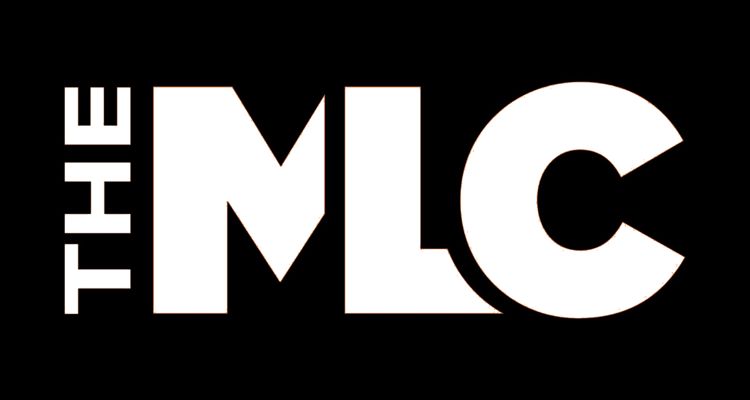
Photo Credit: MLC
The road to redesignation just got a bit rockier for the Mechanical Licensing Collective (MLC), which is facing urgent calls for reform from a federal lawmaker as well as organizations including the Songwriters Guild of America (SGA) and Music Creators North America (MCNA).
SGA, MCNA, and the Society of Composers & Lyricists (SCL) today reached out with a formal release doubling down on demands for “much-needed operational and structural improvements” to the Mechanical Licensing Collective.
Those improvements were most recently described by Representative Scott Fitzgerald (R-WI) in a letter to Register of Copyrights Shira Perlmutter late last month.
For a bit of background, the MLC has long faced criticism. Beyond pushback about the non-profit’s budget, board make-up, and much more, various individuals, organizations, and companies have for some time voiced concerns about the entity’s ability to connect unallocated “black box” mechanicals with their rightful owners.
Reports have pointed to difficulties in accurately paying out the sizable tranche in question, which, regardless of the parties to whom the funds actually belong, will seemingly be forwarded to publishers based on market share, regardless of ownership, when all is said and done.
(“It is estimated that over $300 million remains in this so-called ‘black box,'” per Representative Fitzgerald’s letter.)
As it relates to lawmaker scrutiny, the topic came up during a June of 2023 congressional hearing featuring higher-ups including MLC CEO Kris Ahrend, whose organization would later the same year tap a variety of proper companies to help bring unmatched royalties to their rightful recipients.
Fast forward to 2024’s opening month, when the Copyright Office kicked off its “periodic review” of the MLC’s designation under the Music Modernization Act. Stated concisely, though the Mechanical Licensing Collective was selected in 2019 to administer the law’s blanket license, its designation is subject to review every half of a decade.
In keeping with a Copyright Office-established timetable, the National Music Publishers’ Association (NMPA), the American Association of Independent Music (A2IM), Word Collections, copyright-reform advocate George Johnson, individual publishers, and many others have formally commented on the matter.
Of particular interest, however, is the mentioned August 29th letter penned by Representative Fitzgerald, who believes that as a whole, the Mechanical Licensing Collective “has done a commendable job in carrying out the MMA’s statutory requirements, processing more than two billion dollars in royalty payments, and building towards a robust and accessible database of musical works.”
But as the congressman sees it, “additional transparency and oversight measures” will improve the MLC, which still has work to do in order “to meet its full potential.”
To be sure, as one condition for the MLC’s redesignation, Representative Fitzgerald is calling for the publication of “specifics around how funds are being spent within each category, how they are contributing to improved outcomes, and why significant increases are necessary in certain categories.”
These specifics include but aren’t limited to “detailed” spending accounts for employees, vendors, litigation, and “other core categories,” besides information about the organization’s investment policy.
More noteworthy yet is the lawmaker’s push for enhanced “board neutrality” – with a clear-cut emphasis on the current presence of major publishers on the MLC’s board.
“For example, in both 2023 and 2024, all ten publishers represented by the voting members on the MLC Board of Directors were also members of the NMPA’s board,” reads a relevant section from Representative Fitzgerald’s letter.
“This not only raises questions about the MLC’s ability to act as a ‘fair’ administrator of the blanket license but, more importantly, raises concerns that the MLC is using its expenditures to advance arguments indistinguishable from those of the music publishers—including, at times, arguments contrary to the positions of songwriters and the digital streamers.”
(The latter point could well refer, at least in part, to the unpaid-royalties lawsuit the MLC is spearheading against Spotify over its bundling reclassifications, which have elicited vocal criticism from the NMPA.)
Not stopping there, the lawmaker’s letter also targets the voting-power structure behind the board (the Nashville Songwriters Association International’s continued presence “paints a troubling picture of a figurative rubber stamp within the MLC boardroom”) and asks the Copyright Office “to examine whether there should be additional changes to the MLC board as a precondition for redesignation, such as changes to the MLC bylaws” and more.
By way of summary – the letter contains a number of other sweeping proposals and requests – the text closes by diving into the black box royalties subject, and especially the highlighted market-share distribution model thereof.
“While I commend the MLC’s efforts thus far to distribute historical amounts of mechanical royalties to rightsholders,” the representative’s letter spells out, “questions remain about whether the eventual market share based distribution serves as a disincentive to continue innovation. I would encourage the Copyright Office to define clear timeframes and transparency measures in the distribution process as a condition of redesignation.”
Bringing the focus back to the aforesaid organizations, the Songwriters Guild of America and others “appreciate the consistent outreach and earnest work of MLC” head Ahrend, but wholeheartedly back the reforms floated by Representative Fitzgerald.
In short, the three entities have taken the opportunity to double down on the above-described criticisms (particularly including the Nashville Songwriters Association International qualms) and bill their sought MLC reforms as “essential prerequisites to” redesignation.
“Our coalition will meanwhile continue its work on Capitol Hill and with the Copyright Office advocating for genuine protections of independent, individual music creator rights by the MLC,” the message concludes.
Though it’s perhaps implied in light of the above information, it’ll be interesting to see how the Copyright Office’s redesignation process proceeds from here – and whether recent developments translate into reforms. Late July saw the MLC submit a nearly 70-page reply addressing issues raised in prior comments.

